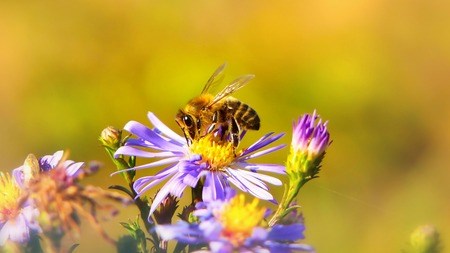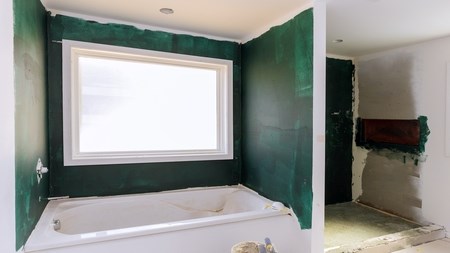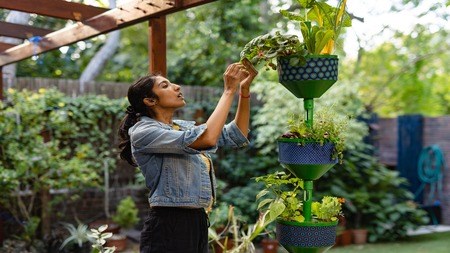This trend was first noticed around 2015, when millennials were entering their 30s. It surprised surveyors because, up to that point, most millennials were known for their digital lifestyles, which usually kept them indoors. In 2016, the National Gardening Survey revealed that over 80% of the six million people who began gardening that year were millennials.
Reasons why Millennials are gardening
It has been suggested that one reason millennials have embraced gardening is their concern about world issues, such as climate change, sustainability, and food security. The latter is important because most millennials include a food or herb garden in their yards or on their patios.
Another finding for the rise in millennials’ gardening efforts is the stress-relieving factors that come from interacting with the outdoors. Anxiety from constant online engagement is alleviated, and using their fingers to interact with soil and plants rather than screens and keyboards can have a similar effect to taking antidepressants.
The rise in data that promotes ‘being in nature’ as restorative for mental wellbeing has had a huge effect on millennials who have a fast-paced lifestyle. Nature goes at its own pace … slowly, forcing the age demographic to use their gardening time as a way to relax and become calmer.
Nostalgia has played a significant role. If a millennial’s childhood included helping parents and grandparents in the garden, they are more likely to want to recapture those halcyon days and apply what they learned in their own spaces, and to pass ancient and new knowledge onto their children.
Gardening to attract wildlife, such as flowers that attract bees, is crucial to the survival of mankind, playing the role of helping plants to reproduce, which in turn assists with global food security challenges.

Value of garden
The garden is usually the first thing potential buyers see when viewing a property that has one. This means the garden sets the tone for the property’s overall look and feel. There are some—albeit unqualified—statistics that a garden can even increase a property’s value by up to 16%.
Curb appeal
Enhancing curb appeal is one of the trends included in millennials’ gardening projects. This further adds to the attractiveness and desire to view the property, or want to enter it.

Apartment living
Having a small balcony or none at all, is not stopping millennials from gardening. Generally they start small, perhaps a number of houseplants, but also indoor vertical gardens have appeal. Potted herbs in the kitchen are adding new flavours to cooking, and potted vegetables like tomatoes and peas can provide enough for a small family.
Millennials’ kids
Gen Z'ers started to become far more interested in gardening during Covid’s lockdown period, when an estimated 18.3 million new gardeners emerged, said the US’s National Gardening Association, with Millennials’ participation increasing by 65%.
As they became more involved, it presented opportunities to pass on their knowledge to their children, and this in turn saw a 44% increase in Gen Z’s own participation. They are not only learning the how-tos of gardening but also patience, responsibility, the value of growing your own food, how to nurture and care for something, and reaping the massive benefits of being outdoors.
How gardens motivate a property purchase
Millennials don’t merely treat gardening as a hobby. Instead, they want their outdoor spaces to be an extension of their homes. In other words, the garden becomes yet another living space. This is why even the apartment balcony starter garden can be a strong motivator for a move to a property with a garden, and space enough to entertain, play, and meditate outdoors.
Millennials are also concerned with sustainable, water-wise and environmentally friendly gardens, without the use of potentially harmful chemicals. They are passing on their soil-rich knowledge to their children, informing them of the value of all the little creatures like earthworms that play a massive role in plant health and organic produce. There are rewards to learning about birdlife, wildlife, and plant life that connect families and increase their knowledge about how important it is to be aligned with nature.
Social media
Gardening also taps into online social media connections that millennials have. Gardens and plants are visually very appealing, and a wealth of gardening apps allow them to get instant answers to questions, observe trends, receive compliments, and start conversations with like-minded peers. The irony is that while gardening counters the effects of being excessively online, it also pulls gardeners back to their digital and like-minded social connections.
Escape
Over centuries, there is clear evidence that young and older people benefit enormously from time spent outdoors and doing gardening, and not just from a health perspective. Savings, for example, can be realised from planting and harvesting vegetables that can be far more nutritious than store-bought produce, for example. But likely, one of the best benefits is that it allows us all to escape from the noise in our heads, and can be a family activity that ultimately benefits all.




